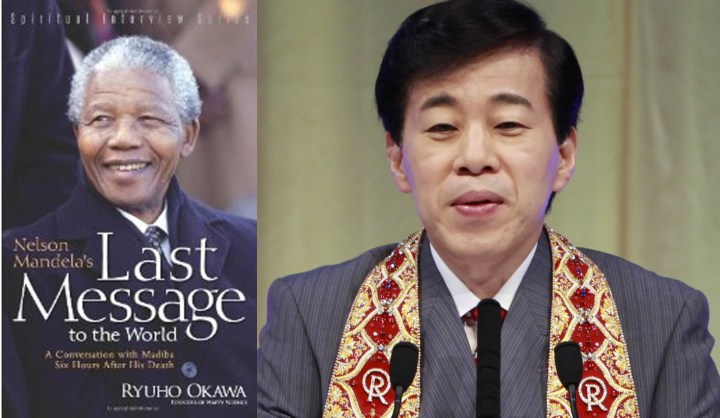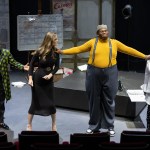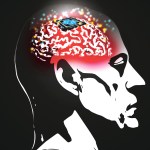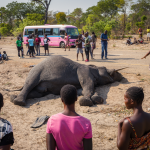Maverick Life
Japanese guru’s post-death Mandela chat: A spirited load of bollocks

Think the most explosive book published after the death of Madiba will be former personal assistant Zelda la Grange’s memoir “Good Morning Mr Mandela”? In that case, you must have inexplicably missed the recent publication from bestselling Japanese guru Ryuho Okawa – “Nelson Mandela's Last Message to the World: A Conversation with Madiba Six Hours After His Death (Spiritual Interview Series)”. REBECCA DAVIS badly needed to find out more.
At the South African Book Fair in Cape Town last weekend, a small stand was devoted almost entirely to the works of one writer. A large banner pronounced Ryuho Okawa “Japan’s Bestselling Author for 22 Consecutive Years”. Among the noteworthy achievements of Okawa’s CV, he allegedly holds the Guinness World Record for the most books published in one year: 52, or one a week. Not bad. Enid Blyton could write a book in five days, but she didn’t have the admin of communing with the spirit world to deal with.
Ryuho Okawa’s Spiritual Interview Series has something of a unique selling point, you see: exclusive chats with world leaders after their deaths. Okawa doesn’t even seek them out. They come knocking on his door. Nelson Mandela was no exception.
“It was an astonishing moment,” Ryuho Okawa writes of 5 December 2013. “While I was watching CNN, Breaking News of Nelson Mandela’s Death just came in. Only four hours had passed since that moment.”
So far, so uncontroversial, beyond the weird use of capital letters. But shazam! A very sho’t left to Crazyville follows immediately after.
“It was quite natural that he should appear within minutes before me,” Okawa records modestly. “I dare say ‘he came as usual’, like Mrs Margaret Thatcher.”
Why, mere hours after passing on, would Nelson Mandela’s spirit choose to visit a Japanese man he had never met? It’s the fundamental riddle of the book; and speaking frankly, one not answered to this reader’s satisfaction.
That is not to suggest that Ryuho Okawa is just any Japanese man, however. Okawa is the “Master and CEO” of the Happy Science Group, the two job titles suggesting an uneasy amalgam of the corporate world with the spiritual realm. The Happy Science Group terms itself a religion, but let’s call a cult a cult – not least because Okawa is the self-styled saviour of mankind.
He didn’t start out that way, of course, though Okawa was marked for greatness from a very young age, manifested in significant spiritual triumphs like becoming editor of his school newspaper. Okawa was a high-functioning drone within the world of financial trading until he was 30. But Jesus Christ and other “High Spirits” kept telling him to face the fact that he was the Grand Saviour, which isn’t the kind of thing you can easily ignore while poring over Excel, so he chucked it in with the trading company a week after his 30th birthday.
Today Okawa tours Japan and the world, preaching the gospel of Happy Science. Africa seems to be a particular target for his missionary outreach. Happy Science branches have been established in Uganda, Nigeria – and South Africa. In May last year, Exclusive Books hosted Okawa in the launch of one of his books at their Sandton City outlet. Happy Science South Africa’s Facebook page announces that they hold services on Sundays, Thursdays and Saturdays in Durban.
It’s in Uganda, however, that Happy Science appears to have gained the most traction. In 2012, the Huffington Post reported on a speaking tour to that country by Okawa: “Buses decorated with the image of Happy Science founder Ryuho Okawa ferried people from all over Uganda to attend his lecture inside the national stadium, causing traffic jams and upsetting athletes who had planned to use the space for Olympic trials.”
It wasn’t just the aspirant Olympic athletes who were unhappy. Pentecostal pastor Martin Ssempa had some cutting words for Okawa. “People who claim to be God are either impersonators or comedians,” Ssempa said. “I have not found Okawa funny.” (It should be noted that many people find Ssempa himself quite funny, since he believes that gay people eat “poo poo”.)
Anyway, Okawa is Jesus and Buddha and Muhammad all rolled into one middle-aged Japanese package. On his version, which you might not want to quibble with too much just in case he’s right. It is presumably for this reason that the spirits of global luminaries are queuing up for cosy posthumous one-on-ones with him.
Among the other world thought-leaders Okawa has interviewed from beyond the grave is Steve Jobs: “Be Simple, Be Crazy”. Saddam Hussein also features in the series, chatting to Okawa from his toasty warm new home: “In this book, you will discover that Saddam Hussein was also behind the planning of the 9/11 terrorist attacks and both he and Osama bin Laden are now in Hell.”
We learn that dead leaders spend some of the afterlife conferring over how best to make their voices heard. Maggie Thatcher and JFK both personally recommended Okawa to Mandela, presumably via some ghostly version of LinkedIn, as a “convenient” channel through which to deliver spiritual messages.
Nelson Mandela’s Last Message to the World: A Conversation with Madiba Six Hours After His Death takes the form of a transcription of an interview carried out with Mandela’s spirit, occupying Okawa’s body, by three hired interlocutors.
When Nelson Mandela’s spirit entered Okawa’s body, it emerges through the book that the spiritual messages it wanted to deliver to the world were suspiciously centered on Japanese superiority. If Japan had won World War II, Okawa-Mandela says, South African Apartheid would never have happened. He’s a bit hazy sketching out the precise counterfactual scenario, but it’s the vibe of the thing that counts: all those years on Robben Island could definitely have been avoided. But what kept Mandela’s spirit strong throughout his island detention? Why, turns out it was Happy Science. Okawa-Mandela even sings a song in homage to the cult at one point.
Okawa-Mandela reveals himself to be a hugundous fan of Japan. “You have no discrimination in your country,” the spirit says approvingly (ignoring the 2005 findings of a United Nations special rapporteur that racism in Japan was “deep and profound” and insufficiently recognised by government). China, on the other hand, is another story altogether. “Korea and China, they are bad, evil,” Okawa-Mandela proclaims.
Chinese expansion in Africa is a “problemsome problem”, a rather evocative phrase. “In [the Chinese] mind, there is no love for people, no mercy for people,” says Okawa-Mandela. He advises that Japan must show them the way, ideally by nuking the shit out of them, after Japan has finished showing Islamic countries the way.
Okawa-Mandela is also clear-sighted about the lessons that Japan has for South Africa and the rest of the continent.
“I would like to ask about the issue of security in South Africa,” says one of his interviewers. “For example, in 1995, the Rugby World Cup was held in your country. In 2010, the Soccer World Cup was held in your country. But Japanese TV stations couldn’t send female correspondents because of the security problem. Because it’s not safe.”
“Yes, it’s true,” says Okawa-Mandela phlegmatically. “It’s true.” He proceeds to blame Africa’s violence partly on “people who are indulging in LSD” – a hitherto under-examined aspect that the Institute for Security Studies may want to look into pretty sharpish. Okawa-Mandela’s recommendation? Japan should beef up its military powers pronto, and get troops into Africa a.s.a.p.
But the terrain traversed during Mandela’s post-death interview is not all hard-hitting geo-political strategy.
‘Who was Mandela in a past life?’ another interviewer wants to know.
“What is my past life? What is my past life? What is my past life? Hmm? Hmm? Hmm? Hmm? Uh huh,” responds Okawa-Mandela, with a discernible edge of panic. Uh huh, indeed.
An uncharitable interpretation would be that the spirit is playing for time. But then an angel informs him that he may, in fact, have been no less a personality than Moses in his past life.
“That’s big news,” says his interviewer excitedly.
“Maybe he just wants to say that I did kind of like the same thing,” Okawa-Mandela hurriedly backtracks. After all, he’s no fan of Moses. “To say the truth, I don’t like Israeli people,” he clarifies.
Ryohu Okawa may be a big cheese in the spirit world. On the other hand, he may also be an odious conman exploiting the deeply-felt loss of the greatest statesman South Africa has ever known to peddle a steaming pile of faeces underpinned by noxious notions of Japanese ethnic dominance.
There is literally only one sensible observation from the entire book, and that’s when Okawa-Mandela asks irritably: “Why am I in Japan? I’m sleeping…”
For God’s sake, Ryohu, let the man sleep. DM
Read more:
- Happy Science, Controversial Religion From Japan, Succeeds In Uganda, on Huffington Post
Photo: (L) The cover of “Nelson Mandela’s Last Message to the World: A Conversation with Madiba Six Hours After His Death (Spiritual Interview Series)”; Ryuho Okawa.

















 Become an Insider
Become an Insider